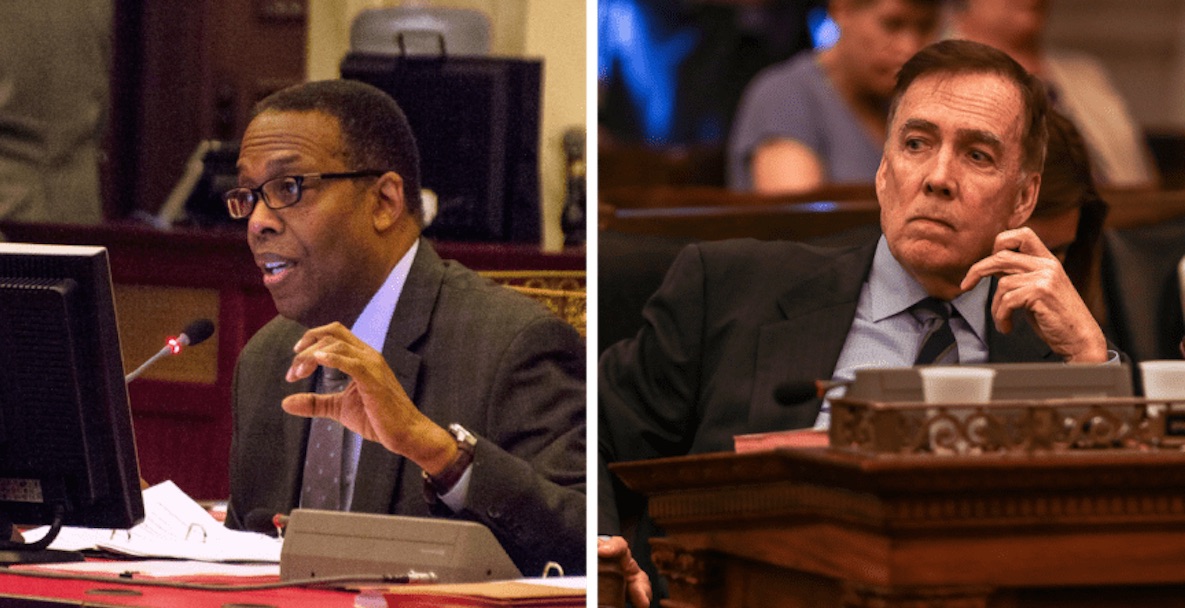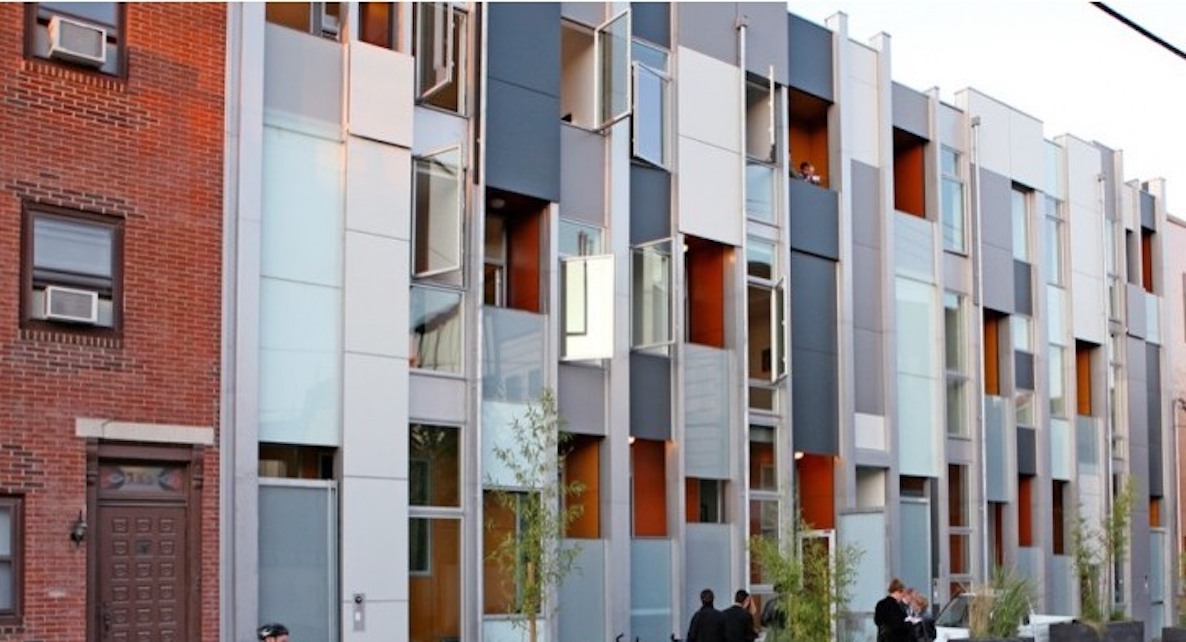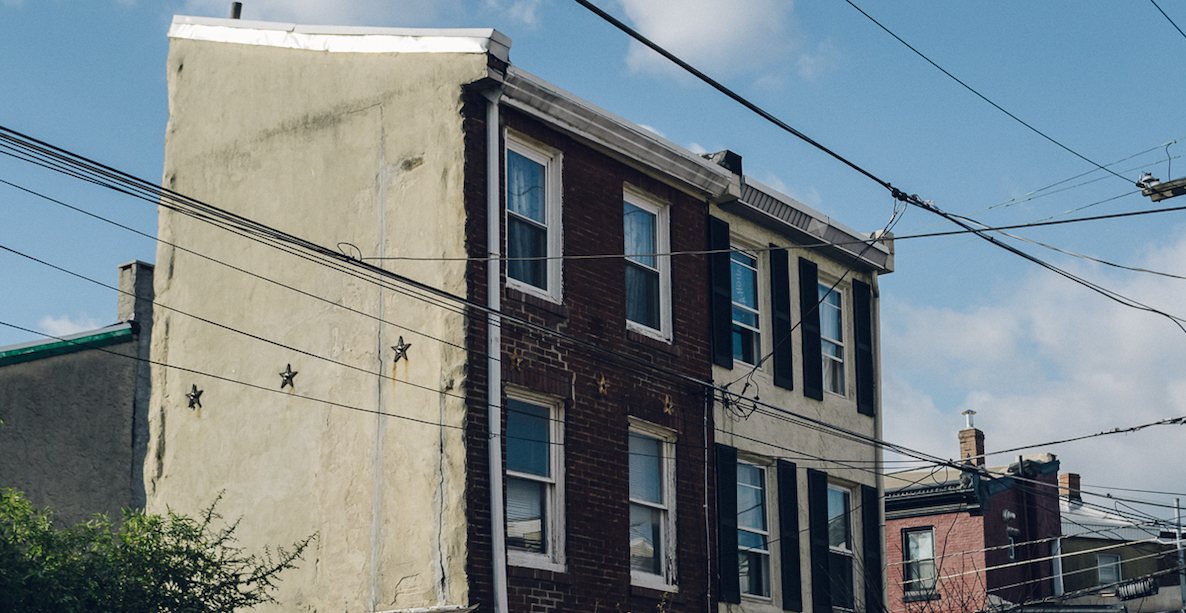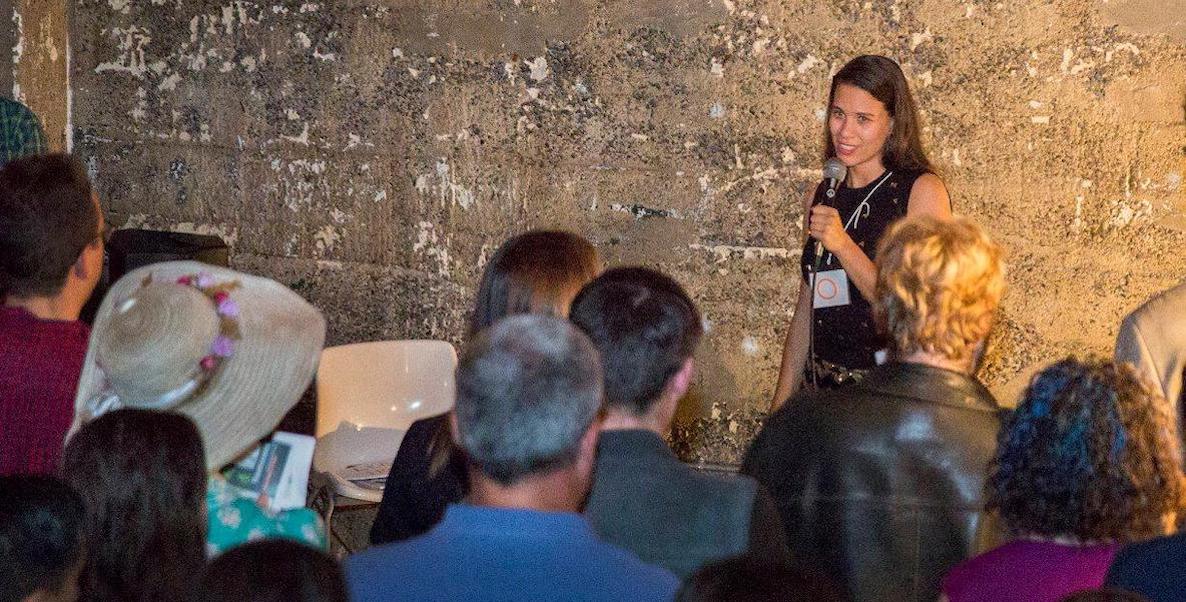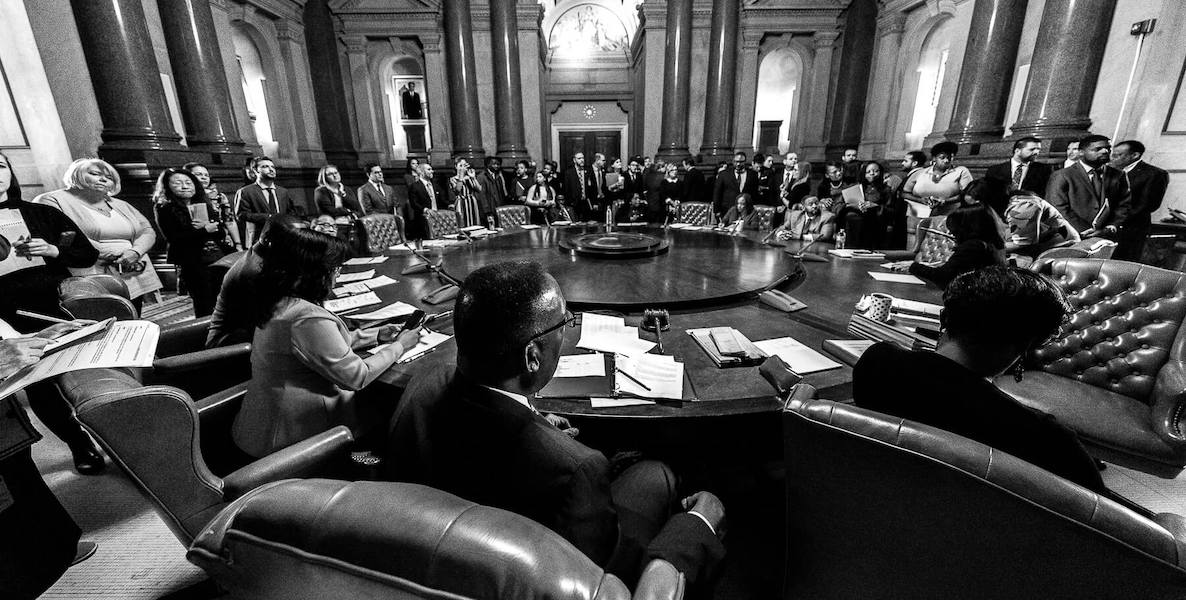When pro-housing activist Sonja Trauss was growing up in Germantown, her neighborhood—near the intersection of Wayne Avenue and School House Lane—had every type of housing imaginable: large and small single family homes; high-rise public housing; senior apartments; a teen drug rehab facility; affordable housing apartment building; “monster” houses broken up into apartments; garage conversions. It was like a city unto itself, a place that exposed Trauss to a diverse set of neighbors, and fostered in her a love of cities.
Today, Trauss lives in almost unlivable San Francisco—but her Germantown neighborhood has maintained its mix of housing and communities. She was home in Philly for Thanksgiving, and made a short video of her neighborhood that noted that the mix of housing “would be illegal” in many cities around the country. That, she says, is a shame.
“We have to make sure that everybody believes that having different types of people, different kinds of uses in their neighborhood is really going to make their lives better,” says Trauss, showing off her Philly love in a Sixers jersey. “I know it made my life better.”
Trauss, whom The Citizen hosted at an event in 2016, left Philly after graduating from Temple, where she cut her teeth as an activist protesting the treatment of skateboarders in LOVE Park. She is now a controversial housing evangelist in San Francisco, a city known more than anything these days for its lack of affordable (or really, any available) housing, work for which Politico in 2017 named Trauss to its list of 50 ideas blowing up American politics.
![]() In 2014, Trauss founded Bay Area Renters Federation (BARF) to fight for the rights of renters and other low-income residents in San Francisco. The group has morphed into YIMBY Action (for Yes In My Back Yard), a political action committee, and YIMBY Law, a nonprofit Trauss runs to advocate for development projects in San Francisco that are affordable, inclusive and have multi-family units.
In 2014, Trauss founded Bay Area Renters Federation (BARF) to fight for the rights of renters and other low-income residents in San Francisco. The group has morphed into YIMBY Action (for Yes In My Back Yard), a political action committee, and YIMBY Law, a nonprofit Trauss runs to advocate for development projects in San Francisco that are affordable, inclusive and have multi-family units.
We caught up with her to find out how Philly can avoid the housing disaster that plagues San Francisco—and how she’s helping to reshape her adopted home into (a bit) the image of her beloved hometown.
Roxanne Patel Shepelavy: First, let’s be clear: San Francisco and Philadelphia are very different cities, with very different problems and successes. For one thing, San Francisco is tiny and has a lot of money. Philly… not so much.
Sonja Trauss: For sure. Philadelphia has a chance to get out in front of the problems we see out here. The main thing is to get out ahead of the shortage. There’s so much open space where you can build, so much opportunity for infill in a way that just isn’t true in San Francisco.
It takes two or three years to build something, and no one really knows how much housing is going to get built in two years. There could be an oversupply: That’s a great idea for the city. I mean when you read business news, it always says it’s bad for real estate. But it’s great news for renters and the city, and employers, because people can find housing.
There are a lot of low-income homeowners in Philadelphia—I use the phrase out here, and they think it’s a paradox. How could a homeowner be poor?
And in Philadelphia, there might not be a shortage of housing, but it could have a shortage of inhabitable housing that costs too much to fix up. I was a senior in high school when Mayor Street tore down 10,000 rowhomes. Everybody thought he was such a hero because that housing was dangerous. Sure, it represented a loss of architectural heritage, but there is plenty more. In Philadelphia, Baltimore, Richmond, programs and policies need to make sure people are renovating existing housing. In San Francisco, we don’t have empty houses anymore. There are a lot of low-income homeowners in Philadelphia—I use the phrase out here, and they think it’s a paradox. How could a homeowner be poor?
RPS: Well, we have low-income homeowners often because people inherit houses. For many Philadelphians, buying a new home is also out of reach.
ST: We have people here who have inherited houses, too. We also have more jobs. Here, housing prices are so high that you could get $1 million, so they sell. A similarly situated person who inherits a house in parts of Southwest Philadelphia: What’s the point of selling it? If you inherit something, and you don’t really have a job, you’ll just stay there in Philadelphia. Here we have a totally different kind of displacement than in Philadelphia. People here worry about high housing prices displacing low-income homeowners because they can sell their homes for $1 million and leave the Bay Area. It’s a choice. But it still reduces diversity.
![]() RPS: You ran for the Board of Supervisors in San Francisco last year. What happened?
RPS: You ran for the Board of Supervisors in San Francisco last year. What happened?
ST: I didn’t win. But it was great. The thing I was running on—which was legalizing affordable housing all over the city—wound up becoming a ballot measure that passed this year. Without question, that would not have happened if I wasn’t running on it. The last three weeks of the election I was going out explaining to people that it was literally illegal to build multi-family homes in 80 percent of San Francisco. People were outraged. The city was mostly zoned for single family homes, which are not affordable for anyone in San Francisco. That is a law that creates economic segregation.
RPS: San Francisco is an extreme case, right?
ST: I read somewhere once a metaphor that I use to explain this: If you come across a perfectly clear stream then it’s probably poisoned, because naturally, something will live in water. If you’re going to drink the water, you have to see fish or something living in it.
It’s kind of how I feel about places that are truly the worst: The places where there is no fighting over housing at all, those zoning codes are the places where developers don’t even try. So Palo Alto, but also places you might not know about—Los Altos Hills; Atherton. Their zoning and whole culture around building are so hostile that you don’t even hear the fights. In San Francisco, we have a mayor now, and previously, who is pro-housing.
An oversupply [of housing] is a great idea for the city. When you read business news, it always says it’s bad for real estate. But it’s great news for renters and the city, and employers, because people can find housing.
Meanwhile, San Francisco’s Board of Supervisors all represent individual districts, instead of the mix of district and [at-large] like in Philadelphia, which I think is best. Here it’s super-parochial: Supervisors say my constituents don’t want to change the zoning, they don’t want this project, probably someone else will pick up the slack, but no one does. They have had the right to do that; it’s unwritten, but how it works.
RPS: That sounds a lot like what we call councilmanic prerogative here in Philly.
ST: Yes, but with the new law here, if the proposed project is for subsidized housing, they won’t be able to do anything about it. There’s no venue for neighbors to tell planners or commissioners that they’re against the project. An affordable housing developer would probably still hold community meetings, but there’s no legal mechanism for opposing it. I think we’ll see some projects start being built.
RPS: In your Thanksgiving video, you describe your Germantown neighborhood as having a diversity of housing types that are illegal in so many other places. Was it always like that?
ST: Yeah, it really was. I remember when I was about 11 or 12, driving through Nicetown or something and someone had painted their house lime green; it had a stone front, and they’d painted the space between the rocks black. And my mom said, “Not everywhere would someone be able to paint their house that way. There are places, with a homeowners association or something, where neighbors can tell you how to paint your house.” I was so shocked, and so angry; it seemed like such a total violation of the First Amendment or something. And for what? From then on, when I found out about [restrictive] zoning rules, it surprised me.
![]() Then a couple years ago, once I’d been to a bunch of planning hearings, I realized: My block had everything you could imagine, including schools, which people even fight against. Out here, the planning commission has a very narrow sort of thing they want to see: If you want to build 300-square-foot apartments, they’re like, That’s too small. If it’s a 3,000-square-foot house, they ask, Why do you need so much space? But so much apartment housing in Philly is big houses that were broken up later. It’s a huge source of affordable housing, eventually.
Then a couple years ago, once I’d been to a bunch of planning hearings, I realized: My block had everything you could imagine, including schools, which people even fight against. Out here, the planning commission has a very narrow sort of thing they want to see: If you want to build 300-square-foot apartments, they’re like, That’s too small. If it’s a 3,000-square-foot house, they ask, Why do you need so much space? But so much apartment housing in Philly is big houses that were broken up later. It’s a huge source of affordable housing, eventually.
RPS: What’s next for you?
ST: Mayor [London] Breed appointed me to the Regional Planning Committee of the Association of Bay Area Governments, a regional body that every seven years is supposed to make a regional housing and transportation plan. She’s putting me on there to be a mad dog to fight all the suburbs.
One of the only things that everyone in San Francisco agrees on is that every other city in the region needs to be building housing. There are a ton of places that have a ton of jobs that are relying on San Francisco to build housing. This needs to be a regional conversation. We have 103 cities in the Bay Area, some with only 3,000 people. We need to do out here what happened in Philadelphia in 1852: It incorporated so much land to make it as big as it is. Philly was so forward-thinking it’s incredible.
Want more Philly fair-housing news? Check out these related articles:



